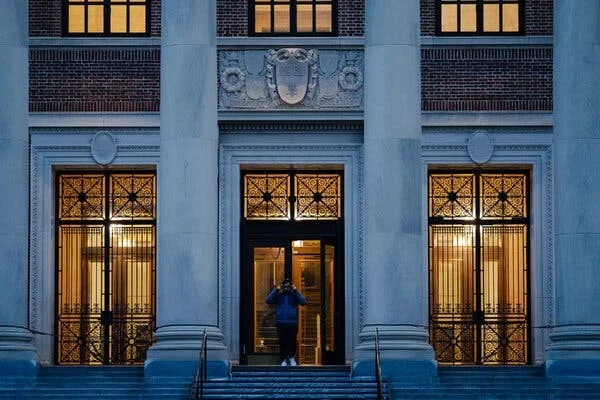
Harvard Rejects Trump Administration’s Demands Amid Controversy
In a significant development, Harvard University has formally rejected a set of demands put forth by the Trump administration regarding its policies on foreign students and faculty hiring. This confrontation highlights the ongoing tensions between academia and governmental oversight, raising questions about the autonomy of educational institutions in the United States.
On Friday, a letter issued by federal officials mandated that Harvard implement "merit-based reform" in hiring and admissions, reduce the influence of students and faculty, and report foreign students involved in misconduct directly to federal authorities. Harvard's response, articulated by its president, Alan Garber, described these demands as unconstitutional and a direct infringement on the university's rights. "No government — regardless of which party is in power — should dictate what private universities can teach, whom they can admit and hire, and which areas of study and inquiry they can pursue," Garber emphasized.

In a parallel statement, Garber informed that complying with the administration's extensive demands could threaten the longstanding partnerships that have benefitted Harvard and contributed to numerous advances in various fields, including medicine and engineering. Furthermore, he referenced the potential economic implications if the university's federal funding, approximating $256 million in contracts and $8.7 billion in grants, were to be jeopardized by these political pressures.
As Harvard stands firm against what it considers an overreach of governmental authority, the controversy spotlights a larger debate about freedom of inquiry and the role of federal oversight in academia. With the Trump administration's focus on alleged antisemitism on campuses, Garber acknowledged the importance of addressing such issues but argued that the approach taken by the government compromises the university’s academic independence.
This narrative unfolds as various institutions face similar challenges, with the tug-of-war between educational freedom and governmental demands becoming a focal point of recent political discourse. The situation continues to evolve, with legal implications yet to be fully realized as Harvard's leadership pursues its principles vigorously.
While the university remains committed to combatting antisemitism and fostering an inclusive environment, the question looms: can academic institutions uphold their fundamental values without succumbing to external pressures? This ongoing battle will likely draw attention from both supporters and opponents of the administration's demands.
As we look forward to further developments, what are your thoughts on the balance between governmental oversight and academic freedom? Share your insights in the comments below.